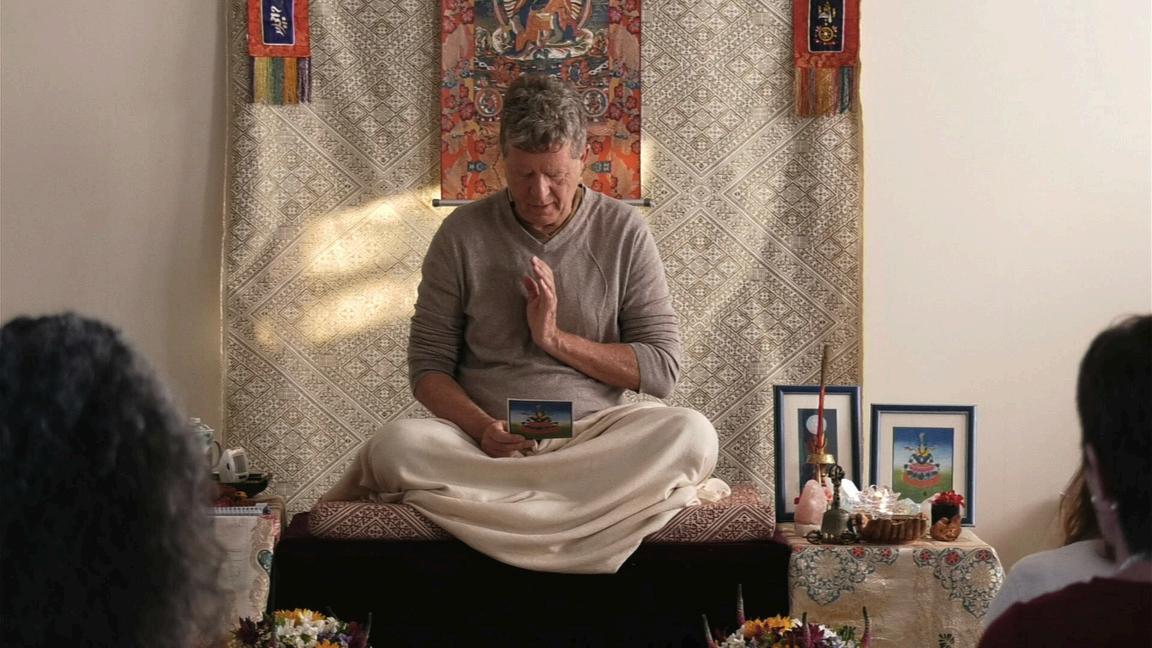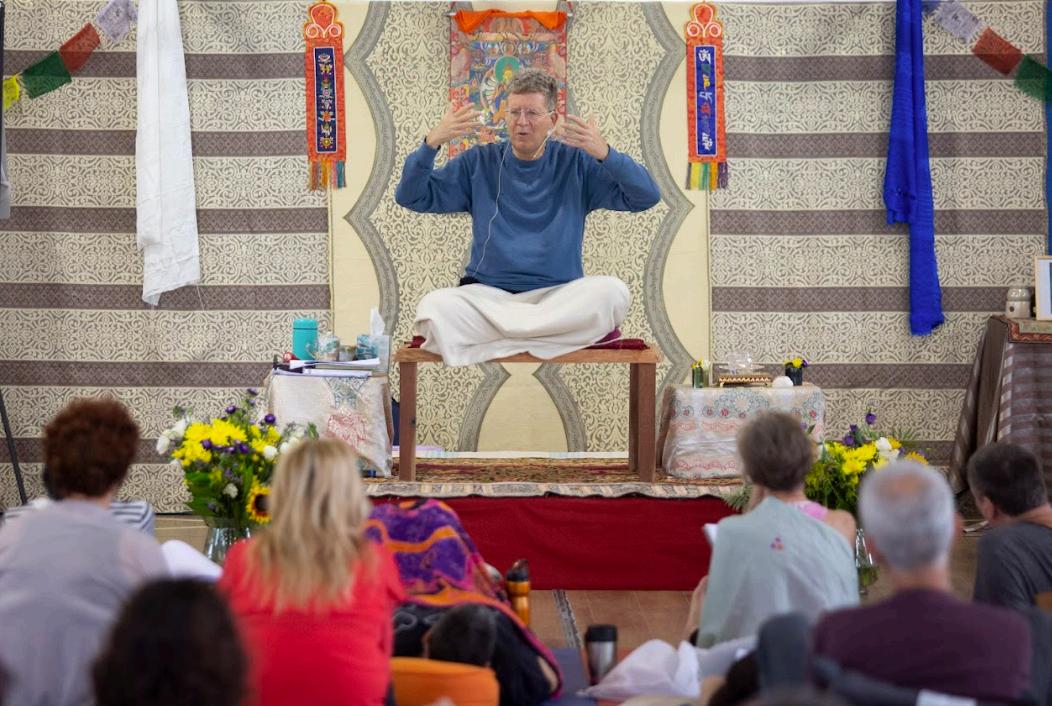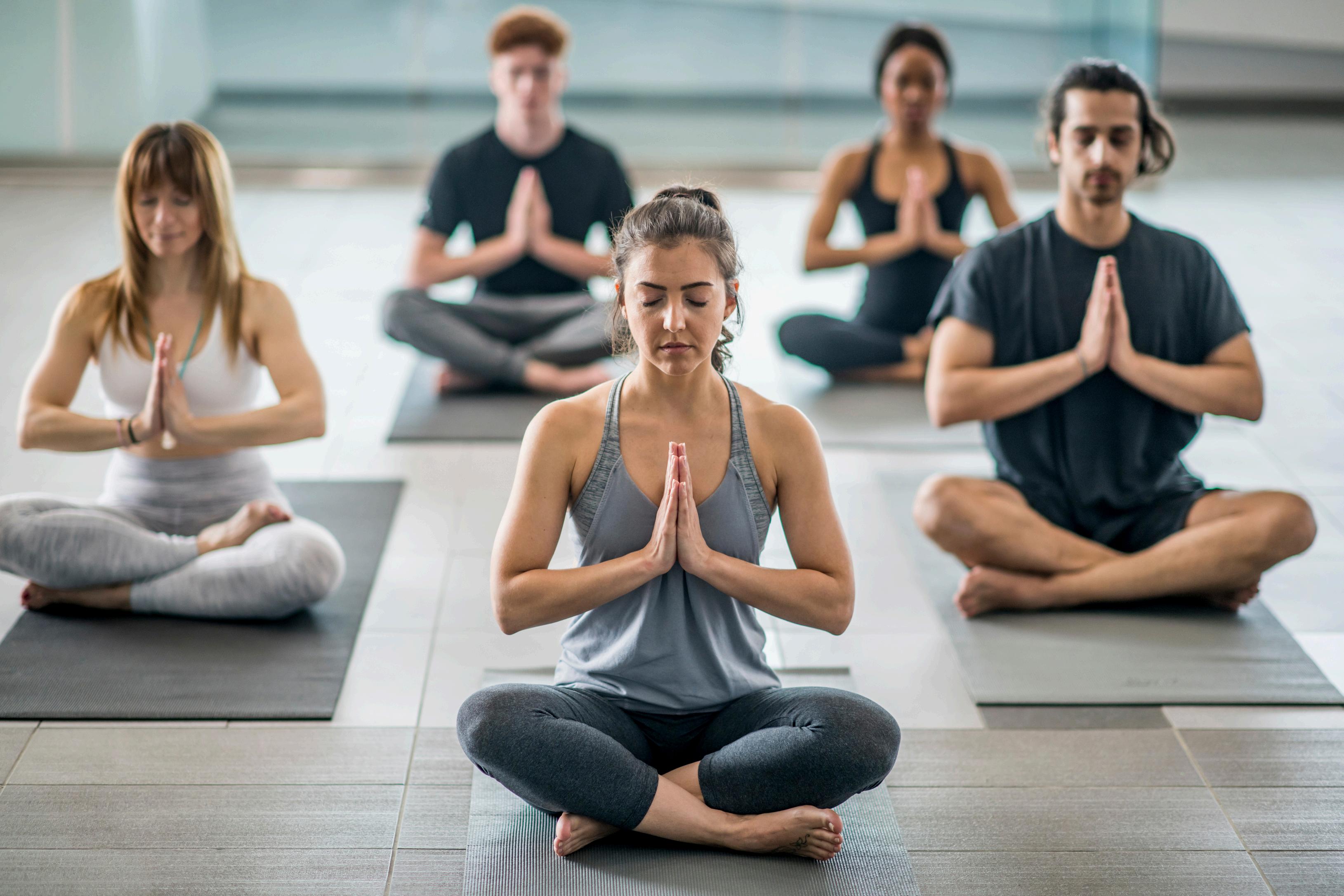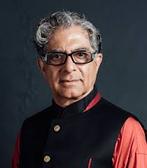
Mind, Body and Heart: How to Nurture Your Inner Calm and Heal With Meditation


PROTECT YOUR HEART, IMPROVE YOUR EMOTIONAL HEALTH, AND BALANCE YOUR ENERGY, BY QUIETING YOUR MIND




PROTECT YOUR HEART, IMPROVE YOUR EMOTIONAL HEALTH, AND BALANCE YOUR ENERGY, BY QUIETING YOUR MIND

Isaac Eliaz, MD, has been a pioneer in integrative medicine since the early 1980s, focusing on cancer, immune health, detoxification, and mind-body medicine. He’s a respected clinician, researcher, author, and educator. He is the author of The Survival Paradox and formulator of EcoNugenics, a line of science-backed supplements
He is also the founder and Medical Director of Amitabha Medical Clinic and Healing Center in Santa Rosa, California.
Dr. Eliaz is a lifelong student and practitioner of Tibetan Buddhist practices. One of them is Tonglen Meditation, a practice that involves the art of exchanging suffering with love and compassion After decades of practice and study, Dr Eliaz created Open Heart Medicine, a modality that combines science, meditation, and a unique understanding of the heart’s physiology and its inherent ability to perform Tonglen meditation as a unique approach to promoting healing on all levels.


“I’ve learned to let go of our current medical system’s dogmatic paradigms, both conventional and alternative. People often say I think ‘outside the box,’ to which I reply, there was never a box to begin with.”
Isaac Eliaz, MD, MS, LAc

A significant amount of focus and energy is devoted to heart health. In the Western world we research heart-healthy diets, schedule cardio classes, take aspirin, and buy blood pressure monitors. Pharmacies have entire walls dedicated to heart medications. Despite these efforts, cardiovascular diseases have been the No. 1 killer in the United States for 100 years¹. In addition, rates of other chronic conditions are skyrocketing, from depression and anxiety to autoimmune problems and insomnia.
But new data suggests that one of the keys to life-long cardiovascular and total-body health doesn’t come from the outside, but from within. Specifically, research is showing that a simple meditation practice can be profoundly beneficial for our hearts, bodies, and mind on every level: physical, emotional, and spiritual.
Just 10 minutes a day helps the brain: Breakthrough clinical studies have demonstrated meditation’s powerful effects on brain structure and function. Regular meditation even just 10 minutes per day improves areas related to concentration, memory, decision-making, and emotional stability. Of course, the association between a healthy brain and a healthy heart isn’t new, but we may have underestimated the power of that relationship 2
Neuroscientists at UCLA have shown another fascinating neural effect of regular meditation: the ability to increase “cortical gyrification” of the brain. Cortical gyrification refers to the folding of the cerebral cortex, a function that allows the brain to process information faster The cerebral cortex is the outermost layer of neural tissue in the brain and serves an important role in controlling memory, consciousness, thought processing, decision-making, attention and awareness.
For example, a study by the Harvard School of Public Health found that a positive outlook can keep heart disease at bay. It didn’t matter whether participants were old or young, rich or poor happy thoughts proved to be good for the heart

BLOOD PRESSURE REMEDY:
Another study, conducted in India, examined the health benefits of meditation and yoga. Participants who adopted these practices for 15 days experienced significantly lower resting pulse and blood pressure. This data is especially significant because the window was so brief. The benefits were almost instantaneous.

Other research, conducted at the Georgia Health Sciences University, showed that teens who practiced regular meditation were able to reduce their hearts’ left ventricle thickness, which can increase from high blood pressure

The research also indicates one of the prime reasons for these benefits: when we calm the mind, everything else in the body relaxes, including the autonomic nervous system. As a result, fewer stress hormones are produced, heart rate slows, and blood pressure goes down One study found that 10 minutes a day of meditation helps reduce symptoms of anxiety.

In addition to supporting cardiovascular health, clinical data shows that meditation provides numerous other benefits, including:
Enhancing immunity
Alleviating depression and anxiety
Boosting cognitive function
Improving emotional health
Protecting neurons and DNA
Reducing pain
Fighting cancer
Easing stress and associated high cortisol levels
Controlling inflammation
One of the simplest ways to calm the mind and body is an ancient form of meditation called Shamatha, which means “calm abiding” In Shamatha, you focus your breathing and attention on a single object, such as a small pebble. As you place your attention on both the object and your breathing, you learn to let go of your surface distractions and neurotic patterns
As the saying goes, “The mind is like a blind rider on a wild horse.” Too often, many of us have no control, and don’t know where our thoughts are leading next We are literally held captive by our everyday mental processes. Shamatha helps peel away these layers of distractions.
As you relax, you begin to experience peace, clarity, and healing.
To begin, find a quiet space Sit comfortably
Place a small object such as a pebble or shell in front of you, and focus on the object and your breathing It won’t be easy at first Your busy mind will likely distract you with to-do lists and other chatter. This is a natural part of the process.
Gently bring your focus back to your breathing and the object. Practice breathing “into” and “from” the object As you use your breathing to nurture this inner calm, it will become easier to access over time.

Tonglen meditation is a Buddhist practice that involves exchanging suffering with love and compassion. Tonglen, or “giving and taking,” invites you to enter a deep compassion based process where personal suffering and the suffering of others become a gateway to interconnectedness, transformation, and healing.

Watch as Dr. Eliaz shares more about Tonglen
Unlike methods emphasizing personal tranquility and feel good based practices, Tonglen turns many traditional meditation objectives upside down by embracing the discomfort of sorrow and making it the soil from which love and compassion can grow – for yourself and others
Rather than avoid the discomfort of sadness, Tonglen asks us to embrace suffering to transform it This ancient approach not only aids in personal healing but also fosters a profound sense of connection and altruism, making Tonglen one of the most powerful transformational practices in the world.
It isn’t always easy to adopt a regular meditation practice. One great way to start is by attending a retreat for inspiration, guidance, and support. Personalized instruction and group support make it easier to let go of stressors. Even more important, developing the practice in a healing environment can help you incorporate meditation into your regular routine.
Often, people undergo visible transformations in just a few days For some, results can be as simple as improved sleep Others, who have struggled with chronic pain, describe the simple joy of being able to sit comfortably Still others report reduced blood pressure, improved emotional health, and enhanced well-being Those suffering from cancer and other forms of chronic illness can also often derive great benefits from meditation. Meditation can work for everyone once you feel the benefits, it becomes an important part of your life.


To experience the full benefits of mind-body healing, look for retreats that incorporate guided meditation, yoga, Qi Gong, energy medicine, and insights from Tibetan, traditional Chinese, and other time-honored healing systems.
As a life-long practitioner of meditation, I’ve had the opportunity to study with renowned teachers, and I’m passionate about sharing my experiences and insights through meditation workshops, retreats, and other educational events to support others on their paths. Buoyed by personal guidance and group support, participants are free to uncover their natural inner peace in a deeply healing environment. It’s a transformational process that extends well beyond the initial event. These practices can infuse us with a lifetime of healing.
Mind-body methods like meditation can only unleash our innate healing potential when we figure out how to truly engage our hearts. In this regard, a more accurate term for this type of healing is “heart-body medicine” rather than “mindbody medicine.” It is heartfulness rather than mindfulness. I call this “open heart medicine”
The basic physiology of our heart and the fundamental mechanics of this vital organ function in a way that actually allows and supports “miracle” healing — an unexpected positive outcome that defies probability.

When life is overwhelming, the last thing we have energy to think about is how to help others, or ourselves for that matter How do we find the motivation to “think positively” and to be grateful for a crisis? First of all, it’s very important to be honest with ourselves. Frustration over hardships is real and natural, and it’s important to recognize it without covering it up under a thin layer of positive thinking, just because people tell us to “keep a positive attitude.” Being honest with ourselves is the foundation for having authentic motivation.
But, it’s equally as important not to internalize our suffering and thus m illness/condition/circumstance. One allow our feelings to flow freely with experience it as a “peeling process.”
There is a very real truth to the philo growth and healing on all levels, ph This is the “peeling process,” where peel away or vanish during a crisis, and our true essence can emerge. In fact, many hout such


cs of
ces at work motivation is gs want the nited by our e all want to ll experience r existence owth is to hopes and achments o greater love n can ion to benefit
Though it may seem contradictory, it is this sense of detachment from our “superficial” circumstances in life that can bring about a greater sense of presence and awareness of a much deeper, more profound state of being. Then, of course, if we can heal ourselves, it inspires us to share it with others, like a bucket that is filled with water So that’s part of giving rise to authentic motivation, and this comes from the heart
True healing, regardless of the health program, is about uncovering greater love and compassion, thereby allowing our innate healing capacities to arise and flourish. Meditation is one of the best ways to accomplish this. In this way, we overflow our cups with unconditional love, gratitude, and compassion for all beings, and effortlessly offer this healing energy to ourselves and everyone around us And that’s something to be truly grateful for.
L I V E R
Easily congested, accumulating toxins (including anger and other difficult emotions) and other metabolic byproducts and excesses.
When we can open up the liver through acupuncture, homeopathic remedies, herbs, mind-body practices, etc., we can begin to experience freedom from our own afflictive physical, mental and emotional issues.
ORGAN:
TRAITS:
Directlyconnected to theheartrelatetowillpower, discipline,perseveranceandourunderstandingof time.Kidneysgovernordinarydiscipline,butthey alsogovernsomethingcalled“timelessdiscipline” thatarisesouttheimpermanent,ever-changing qualityofeverything
REMEDIES:
Acupuncture, herbs, nutrition, mind-body practices, and other modalities can nourish the kidneys to help us experience true timelessness This is where anything and everything is possible and when we can become real healers
ORGAN:
TRAITS:
Nourishes the body as a whole the heart is the ultimate giver and the ultimate transformative organ It takes in “dirty” blood containing everything that other organs, tissues, and cells determine to be waste products, purifies the blood, and returns clean, oxygenrich blood to nourish the entire body. There is a complete connection between the heart and kidneys where we give rise to the genuine motivation to benefit ourselves and others, and the kidneys where we generate discipline and the understanding of the timelessness of everything. It’s a very deep place one where authentic motivation originates from an energetic standpoint.
REMEDIES:
Meditation, practicing gratitude and compassion, circulation-boosting herbs and nutrients, and stress reduction therapies.




Break out of survival mode and unlock your body’s infinite healing potential with Dr Isaac Eliaz’s book The Survival Paradox: Reversing the Hidden Cause of Aging and Chronic Disease. Dr. Eliaz’s Best-Selling Book

doxisa causesofchronicdisease Dr IsaacEliazisatruepioneerinthe worldofintegrativemedicineandsomeoneIdeeplyadmireandrespect Hisbook invokesprofoundinsights,andIhighlyrecommendittoeveryone”
-NATHANCRANE


"TheSurvivalParadoxisanexcellentguideforanyonestruggling withchronicillness.Readitcarefullyandstartyourjourneyto wholenessandwellbeing."
-DEEPAKCHOPRA
“TheSurvivalParadoxisamustreadforeveryone-whetheryouareahealthcare professionalorapatientonyourjourney.Dr.Eliazweavestogetherscienceand emotionalnourishmentinaprofoundwaythatwillchangewhoyouareandhowyou navigatetheworldupontheconclusionofreadinghisbook”
-DR SHARONSTILLS

"Atruepioneerandleadingvoiceinintegrativemedicine,Dr Eliaz presentsaprofoundyetpracticalmodelofhealingthrough fascinatingresearchandinspirationalpatientstories...."
-DR.JOSHAXE
1.
More than half of U.S. adults don’t know heart disease is leading cause of death, despite 100-year reign: Newsroom, National Heart Association (2024)
Luders, E, Kurth, F, Mayer, E A, et al The Unique Brain Anatomy of Meditation Practitioners: Alterations in Cortical Gyrification Front Hum Neurosci 2012 Feb29(6):34 2
3.
Boehm, J K, Kubzansky, L. The Heart's Content: the Association Between Positive Psychological WellBeing and Cardiovascular Health Psychol Bull 2012 Jul;138(4):655-91
4
Sun Han, K, Park, S-H Blood Pressure Response to Meditation and Yoga: A Systematic Review and Meta-Analysis J Altern Complement Med 2017 Sept;23(9):685-695
6.
Vernon A. Barnes, Gaston K. Kapuku, Frank A. Treiber. Impact of Transcendental Meditation on Left Ventricular Mass in African American Adolescents Evidence-Based Complementary and Alternative Medicine, 2012; 2012
5. University of Waterloo. "Just 10 minutes of meditation helps anxious people have better focus." ScienceDaily. ScienceDaily, 1 May 2017. <www.sciencedaily.com/releases/2017/05/170501094325.htm>.
Xu, M, Purdon, C, Seli, P, Smilek, D Mindfulness and mind wandering: The protective effects of brief meditation in anxious individuals Consciousness and Cognition 2017 May(51): 157-165